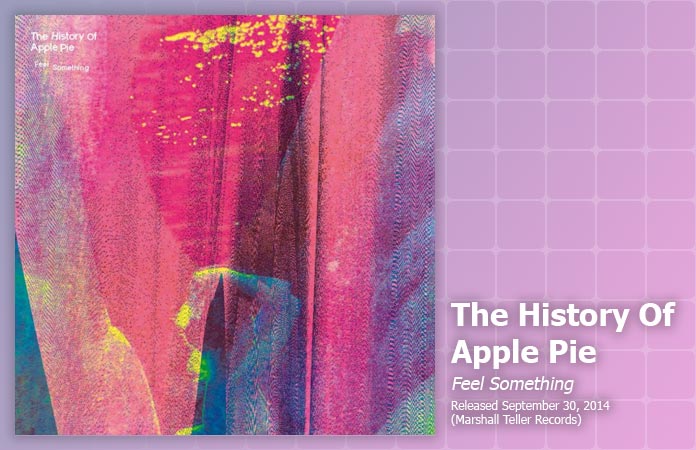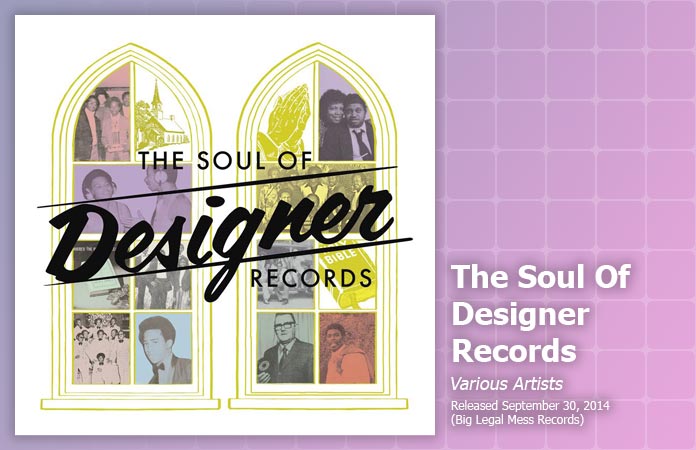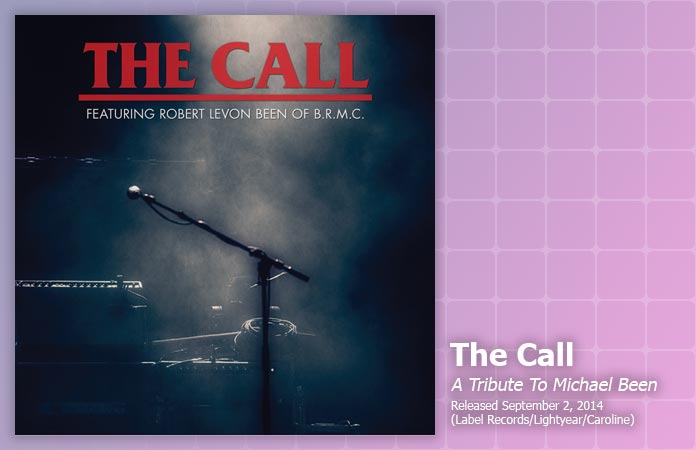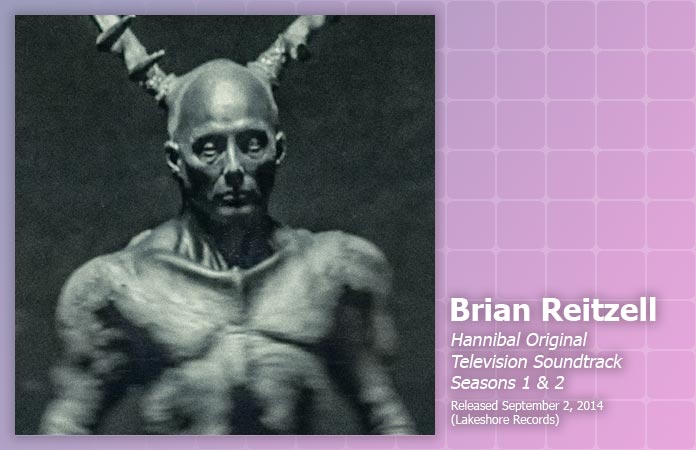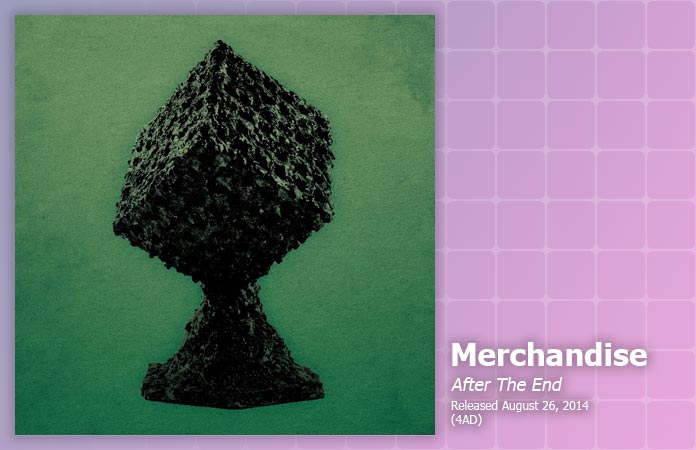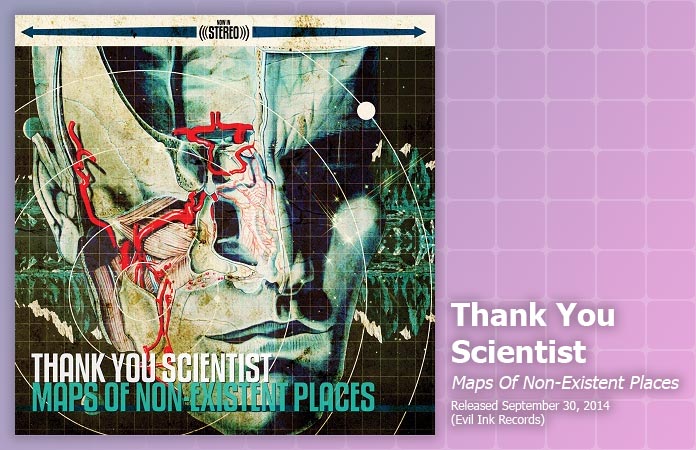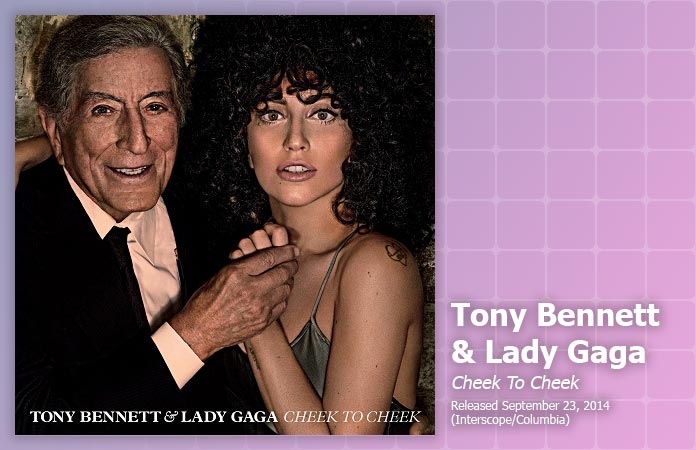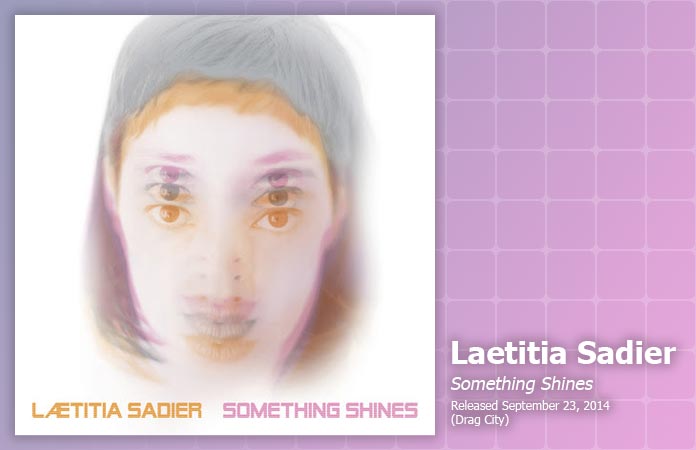Music Review: The History Of Apple Pie, Feel Something
Published on October 3rd, 2014 in: Feminism, Music, Music Reviews, Reviews |On their second album, Feel Something, London’s The History Of Apple Pie fully embrace the ‘90s throwback, shoe-gazey style that they explored on their previous release, 2013’s Out Of View. Listening to Feel Something is like taking a trip back to the not terribly long ago, but longer than I think it was past. The cover of Feel Something even looks a bit like a My Bloody Valentine cover.
Music Review: Various Artists, The Soul Of Designer Records
Published on October 3rd, 2014 in: Current Faves, Music, Music Reviews, Retrovirus, Reviews |Out now on Big Legal Mess Records, the four-CD, 101-song compilation The Soul Of Designer Records is flat out amazing. Between 1967 and 1977, Memphis-based Designer Records founder, the delightfully named Style Wooten, gave any group that wanted it a chance to record in his studio, using his studio musicians if they didn’t have their own, for the low price of $469.50. In exchange, the group would get 25 copies of their single to sell or distribute, and when those 25 were gone, they could re-up for another 25. Black gospel groups flocked to Memphis to record their 45s, and Designer Records became one of the most successful independent gospel labels in the States.
Music Review: The Call – A Tribute to Michael Been
Published on October 3rd, 2014 in: Music, Music Reviews, Reviews |When Michael Been passed away in 2010, it was a loss to true believers everywhere. Those who shared in his beliefs lost a spokesman, one who was absolutely transparent about the struggles of keeping your balance on the righteous path. Fans of Been’s band, The Call, lost the promise and potential of new music. Rock lovers in general lost one of the best, a man who went practically unsung during his career, yet one whose absence leaves a perceptible gap.
Been left behind a multi-faceted legacy; not only does his music endure, but so does the music of his son, Robert Levon Been, leader of the band Black Rebel Motorcycle Club. In April of 2013, the heir apparent joined the old guard for a tribute concert to the fallen leader.
Music Review: Brian Reitzell, Hannibal Original Television Soundtrack Seasons 1 & 2
Published on September 26th, 2014 in: Current Faves, Music, Music Reviews, Reviews, Soundtracks and Scores, TV |Fans of both Hannibal Lecter and Brian Reitzell will be thrilled by the recent release of nearly five hours of music from the soundtrack to what may become known as the most compelling interpretation of Thomas Harris’s iconic character, NBC’s Hannibal. With 27 tracks, one representing each episode from both seasons (and an extra track highlighting some of the music in Season 2’s killer finale), there is much to absorb here. Even those who have never seen the show, or who have perhaps avoided it because they can’t imagine anything living up to Anthony Hopkins’s cinematic portrayal, will be seduced by the exquisite sounds contained within this collection.
Music Review: Merchandise, After The End
Published on September 26th, 2014 in: Current Faves, Music, Music Reviews, Reviews |O nostalgia is just a looking glass
It’s for us to distort and mold
Won’t someone please help me
I’m too young to feel this old.
—Merchandise, “Looking Glass Waltz”
The first track on Merchandise’s new album is called “Corridor,” a stunning instrumental track that feels like the introduction to a concept album. While After The End is anything but, it’s not a stretch to imagine the band tackling something like that one day. They’re full of surprises.
Music Review: Thank You Scientist, Maps Of Non-Existent Places
Published on September 26th, 2014 in: Current Faves, Music, Music Reviews, Reviews |By Tyler Hodg
In a world with so many options, how does one decide on what genre to listen to? Well, “thank” Thank You Scientist for finding a solution to that problem. Categorizing this band isn’t easy and simply isn’t worth the effort. With the re-release of their album Maps Of Non-Existent Places, Thank You Scientist proves that you don’t need to be bound by genre, but by passion and creativity.
Music Review: Tony Bennett & Lady Gaga, Cheek To Cheek
Published on September 26th, 2014 in: Current Faves, Feminism, Music, Music Reviews, Reviews |By Tyler Hodg
Tony Bennett is a clock that keeps on ticking. His career has spanned over 65 years and he shows no signs of slowing down. For his 57th studio album (!!), Bennett calls upon a familiar friend—Lady Gaga—to record a duet album of jazz standards titled Cheek To Cheek. What initially seems like an unlikely pairing is in fact something incredibly special; listening to this album is a reminder of how great these two artists truly are.
Music Review: Laetitia Sadier, Something Shines
Published on September 26th, 2014 in: Current Faves, Feminism, Music, Music Reviews, Reviews |On her third solo album, Stereolab’s Laetitia Sadier treads her accustomed ground, while also shaking things up. Something Shines sounds like a Stereolab record, with space rock, jittering ‘60s tropicalia, and her trademark rich, distant alto. It also shatters song structure, abruptly changing to another style of music whilst in the middle of a song, like a collage. It’s a sometimes-frustrating album, with moments of brilliance.
Music Review: The Turtles, 45 RPM Singles Collection
Published on September 26th, 2014 in: Current Faves, Music, Music Reviews, Retrovirus, Reviews |One of the things that makes listening to music on vinyl different is how much attention must be paid to it. Putting an iPod on shuffle is easy, but not interactive. Listening to an album, or better yet, singles, makes me slow down, sit down, and actually listen to the music. It’s no longer background noise. It’s an experience.
New Country For Old Men: The Eternal Mystery Of Tim McGraw, Part 1
Published on September 19th, 2014 in: Music, New Country For Old Men |If you were to ask me what the worst song I’ve ever heard in my entire life is (go ahead; ask me, quietly, just whisper it in your mind), I would tell you without hesitation that Tim McGraw’s “Indian Outlaw” is the Abomination that Causes Desolation, the Thing That Should Not Be, the Final Solution of Country Music.
